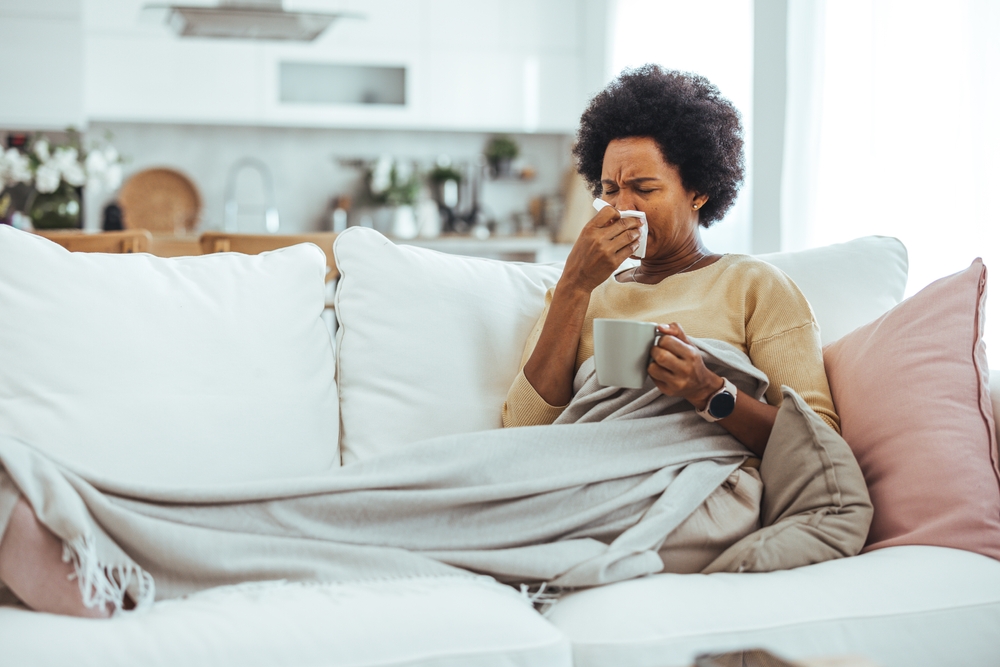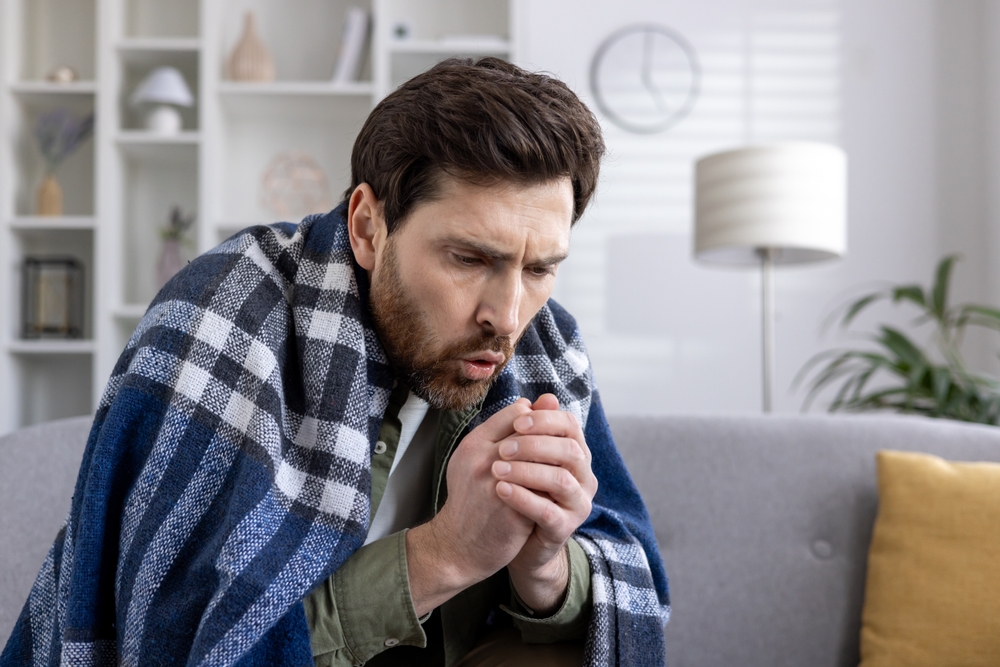Last Updated:
June 4th, 2025
Chills and Shivering Caused by Addiction
Most people associate chills with a passing cold or fever, but in the context of addiction, they can be a sign of a serious problem. From the early stages of withdrawal to life-threatening overdose symptoms, chills can be your body’s way of sounding an urgent alarm. If you or someone you love is experiencing intense or unexplained chills, it’s important not to dismiss them. Paying attention to substance-related chills, especially when paired with other symptoms, can even help save someone’s life.

What are “chills”?
Chills are those sudden waves of cold that make your body shake or shiver, even if the room or the air around you isn’t cold. They are usually caused by your muscles quickly contracting and relaxing to warm you because your brain senses (sometimes wrongly) that you’re cold. Alongside the shivering, chills sometimes come with goosebumps or a fever, but can also happen independently. When the shivers are very severe, they are medically referred to as “rigours” (often accompanied by a very high fever).
How can an addiction cause you to experience chills?
When you experience chills as a result of substance use or from an attempt to quit, it can feel like the only way to get well again is to get your hands on more. This is one of the reasons why it is usually so difficult for people with addictions to stop using and end up relapsing. However, that feeling usually only lasts for a short while, so if you can get through the withdrawal stage (most easily done with professional help), then things become much easier.
Chills are a very common withdrawal symptom for alcohol addiction and various forms of drug addiction, including heroin, stimulants and different prescription drugs. They occur because your body is trying to get back to normal after being thrown off by drugs or alcohol. When you suddenly stop, your system doesn’t know how to cope, and chills are one way that the imbalance presents itself physically.
Are chills dangerous if left unaddressed?
While chills during withdrawal are not usually serious, they can also be a sign of intoxication or even overdose. Certain substances, especially stimulants like cocaine, MDMA or meth, can cause your body temperature to spike, sometimes to dangerously high levels (known medically as hyperthermia). When your body tries to regulate this sudden heat, it can trigger intense chills and shaking. In other cases, opioids and alcohol may slow your system down so much that your body temperature drops, leaving you cold to the core.
Both situations confuse your body’s natural ability to keep its temperature steady, which could have serious and even fatal consequences. The problem is that it can be easy to think that cocaine chills or meth chills are just natural effects from the drugs but if you or someone you know has taken drugs and is exhibiting chills paired with other symptoms, it could be a sign of overdose. These symptoms include:
- Confusion
- Shallow breathing
- Pinpoint pupils
- Loss of consciousness
In the case of an overdose, every second matters, so seek emergency help straight away!
What are some common signs of chills to look out for?
In the context of substance use, particularly when chills are an overdose symptom, understanding what to look for can be incredibly important. The common signs of chills include:
When should I consult a professional about chills?
Whether you have or haven’t been using drugs, if you notice any of the above symptoms, it is advisable to seek medical help. Since chills can also be a symptom of high fever and illnesses such as malaria, a medical professional will be in the best position to examine the root cause and ensure that you receive the most appropriate treatment.
Your doctor may need to conduct urine or blood tests to check for infection and anaemia, and ask you questions about your diet, lifestyle, medical history, stress, and whether fever is one of the accompanying symptoms. Providing the correct and honest answers to these questions will help the doctor assess your condition.

What should I do if I or a loved one is experiencing chills from addiction?
If you have been experiencing chills and think they might be related to substance use, don’t underestimate them. Even something that seems small can be your body’s way of asking for help. Addiction Helper understands how worrying it can be when you notice chills or other signs of addiction, but we are here for you. Contact us today, and we can discuss your worries and provide expert advice on how and where to get help.
Our compassionate team are ready and available to take your call, and guide you towards lasting the lasting addiction recovery you deserve.

